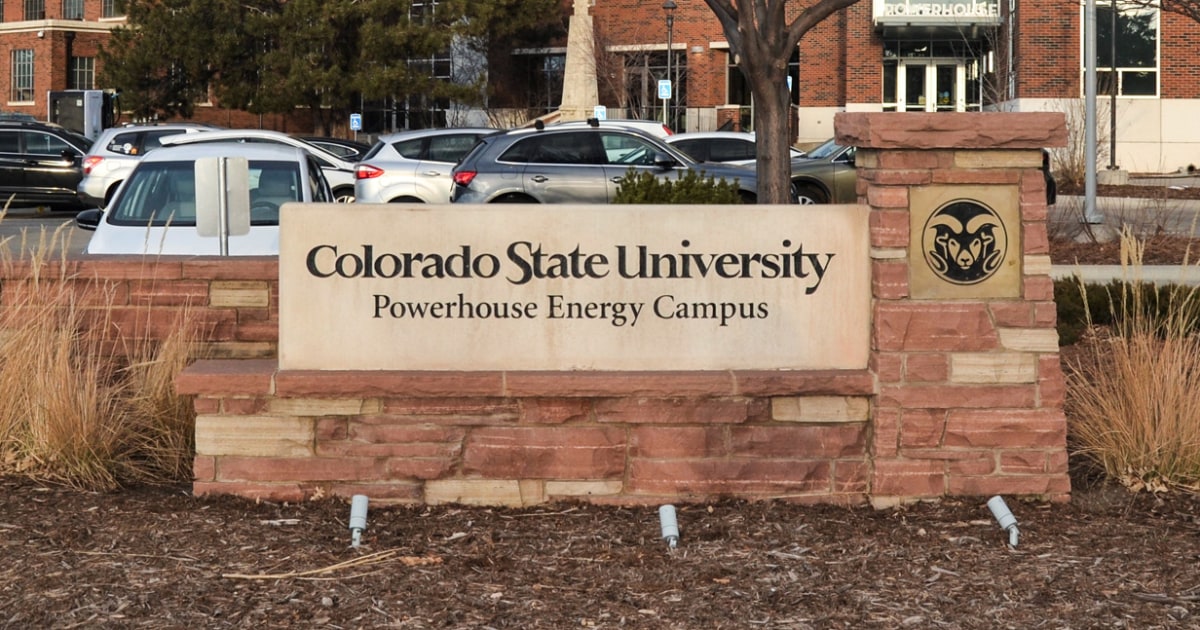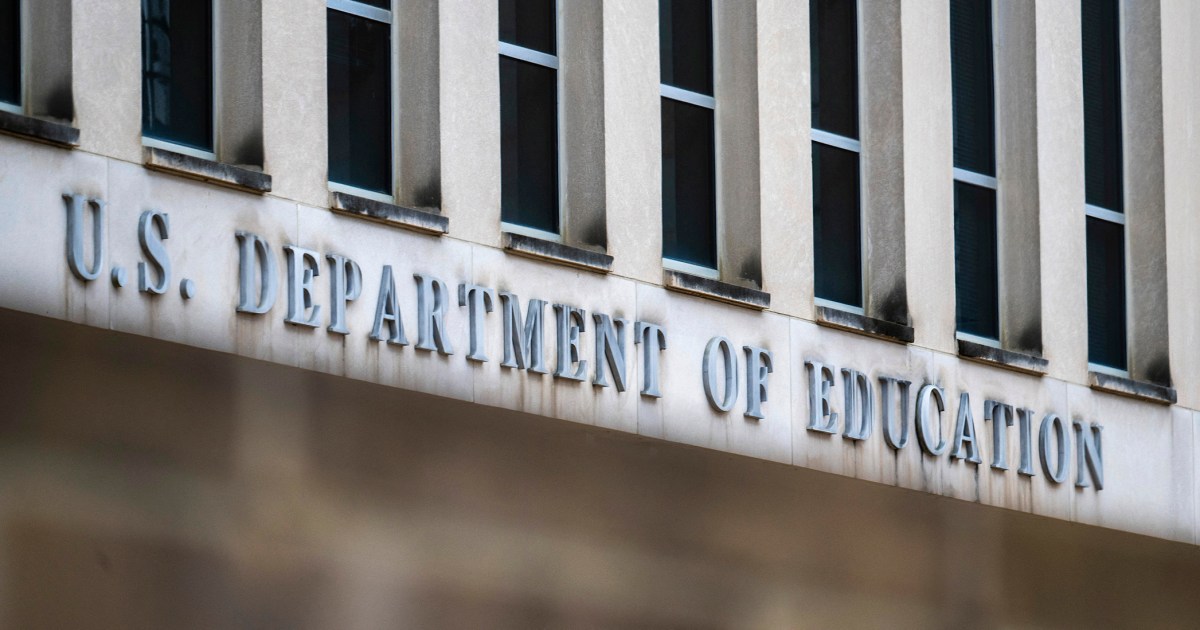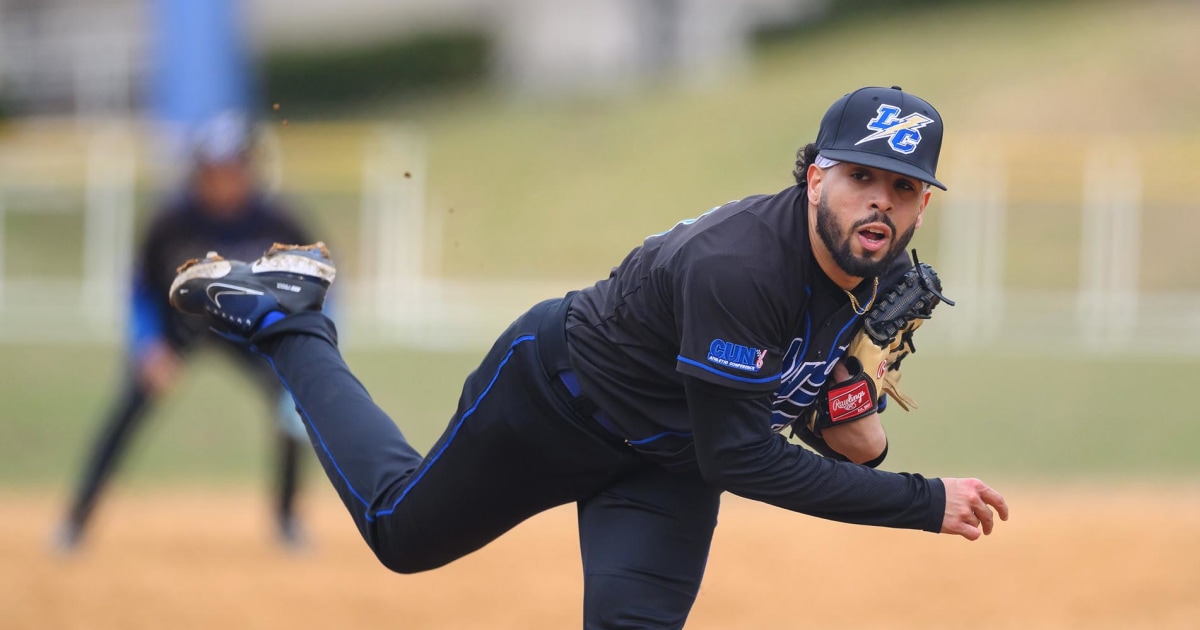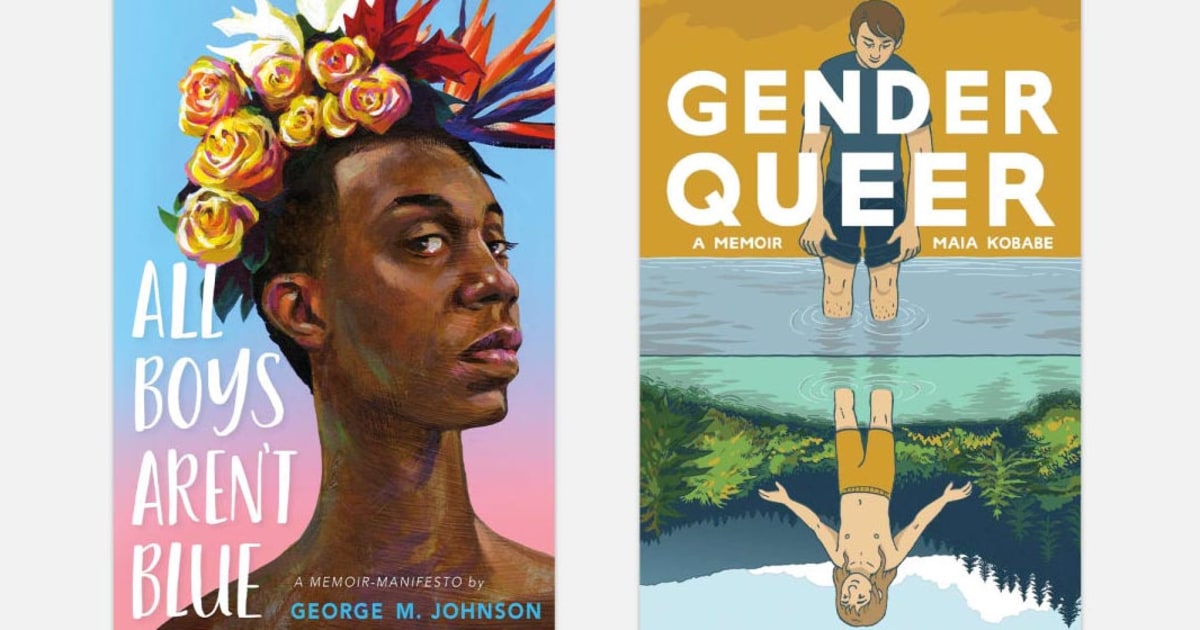Education
Trump administration revokes visas of 10 Colorado international students, universities say

Several international students at Colorado universities have had their visas revoked by the Department of Homeland Security, according to the universities.
Between the University of Colorado and Colorado State University, 10 students have had their F-1 visa, which allows foreign students to study at universities in America, rescinded as of Tuesday evening.
The University of Colorado said four international students were impacted. Meanwhile, six students at Colorado State University had their visas terminated, according to the school.
“We are focused on supporting the success of all of our students, including international students. Each one of our students are seeking to advance their careers and the lives of their families, and we understand the anxieties that visa revocations cause to impacted students,” the University of Colorado said in a statement.
The school added, “We urge any international student with questions or concerns to reach out to their campus’ international student office.”
Colorado State University said the “affected students are advised to immediately contact the embassy of their home country” and “we are working with our state and federal elected officials to ensure that our students are informed of all their options.”
The universities declined to provide additional information or the students’ identity, citing privacy reasons.
The revocation of nearly a dozen visas in Colorado comes after a wave of high-profile arrests of international students across the country in March. The Trump administration has justified its decision to deport the students based on a provision in immigration law. It allows the secretary of state to deport someone if it is determined that the person “would have serious adverse foreign policy consequences for the United States.”
In March, Mahmoud Khalil, a student who took part in the protests at Columbia University, was apprehended by federal immigration officials in New York for allegedly leading activities “aligned to Hamas,” which the United States has designated a terrorist organization.
Another student at Tufts University, Rumeysa Ozturk, was grabbed off the street by federal officers in plain clothes while on her way to break her Ramadan fast with friends over allegations that she “engaged in activities in support of Hamas.”
A year ago, Ozturk co-wrote a student newspaper op-ed criticizing the university’s response to demands that it “acknowledge the Palestinian genocide” and “divest from companies with direct or indirect ties to Israel.”
Authorities also detained Badar Khan Suri, a graduate student from India, who was teaching at Georgetown University on a student visa.
Assistant DHS Secretary Tricia McLaughlin said Suri was “actively spreading Hamas propaganda and promoting antisemitism on social media” and had “close connections to a known or suspected terrorist, who is a senior advisor to Hamas.”
Khalil, Ozturk and Suri do not face known criminal charges.
Last week, Secretary of State Marco Rubio said the State Department had revoked 300 or more student visas.
“It might be more than 300 at this point. We do it every day. Every time I find one of these lunatics, I take away their visas,” he said. “I think it’s crazy to invite students into your country that are coming onto your campus and destabilizing it. We’re just not going to have it. So we’ll revoke your visa.”
Rubio added, “Once your visa is revoked, you’re illegally in the country and you have to leave.”
Education
Democratic-led cities and states push back on threats to cut US school funding over DEI

Some Democratic-led states and cities are pushing back on a Trump administration threat to cut education funding over diversity, equity and inclusion programs, creating a standoff that could test how far the White House is willing to go to press its demands on the nation’s schools.
State leaders in Minnesota and New York said they will not comply with an Education Department order to gather signatures from local school systems certifying compliance with civil rights laws, including the rejection of what the federal government calls “illegal DEI practices.” Chicago’s mayor promised to sue over any cuts. California and Vermont told schools they don’t need to respond.
It amounts to some of the most forceful opposition the Education Department has faced as it uses federal funding as leverage to enact President Donald Trump’s agenda on issues from DEI to campus antisemitism and transgender athletes. The White House has targeted colleges and K-12 schools alike, but unlike universities that rely greatly on federal grants and contracts, school systems get the vast majority of their money from state and local sources.
In a letter Monday to the Education Department, Minnesota’s education chief said the Trump administration overstepped its authority with its latest demand, adding that there’s nothing illegal about DEI.
“Threats to this funding without backing in law or established requirements put key programs at risk that students and schools depend on every day,” said Willie Jett, Minnesota’s education commissioner. The federal department “does not have the authority to unilaterally overrule the will of Congress.”
Jett said his letter would “serve as our response” to the Trump administration’s demand.
It follows a Friday letter from New York’s education office challenging the federal government’s latest demand. It said New York already has provided assurances that it follows federal law and “no further certification will be forthcoming.”
The U.S. Education Department told state agencies in a letter Thursday they must sign a document saying they follow federal antidiscrimination laws and get the same assurance from schools. The document threatens to cut federal money for any civil rights violation, including using DEI practices “to advantage one’s race over another.”
On Tuesday, Education Secretary Linda McMahon commended Puerto Rico for being the first to submit its certification. “Every state that wants to continue receiving federal funds should follow suit,” McMahon posted on X.
The letter does not carry the force of law but threatens to use civil rights enforcement to rid schools of DEI practices. Schools that continue such practices “in violation of federal law” can face Justice Department litigation and a termination of federal grants and contracts, it said.
The letter initially gave states 10 days to submit the certification. On Monday, the Education Department extended the deadline to April 24.
A department spokesperson said the agency is “simply asking school districts to certify they are following the law and not using race preferences or pernicious race stereotypes in schools.”
Even some Republican-led states believe they don’t need to get the document signed by each school. Missouri’s education office said schools previously provided assurances that should cover the department’s demand and it will reach out to districts “if additional information is necessary.”
Others are moving to follow the order, including Virginia and Arizona, where state education chief Tom Horne said the order “aligns completely with my philosophy.”
Vermont’s education chief assured schools the state supports DEI practices and said superintendents won’t need to sign the certification. Instead, the state will assure federal officials it’s already following federal law, Zoie Saunders, the state’s education secretary, said in a Monday letter to school districts.
The Illinois board of education rebuked the federal agency, saying it’s “attempting to exert power over every district in the country — even as it claims it’s returning education to the states.” Chicago Mayor Brandon Johnson, a Democrat, said his city is willing to go to court over the order, which he called federal overreach.
The New York and Minnesota letters both cite past comments from Betsy DeVos, Trump’s education secretary during his first term, extolling the virtues of diversity and inclusion. In a 2020 memo to agency staff, DeVos wrote that “embracing diversity and inclusion are key elements for success.” The states argue the Education Department is shifting its position without explanation.
The states also accuse the Education Department of making broad declarations about the illegality of DEI without citing policies that violate federal law. Minnesota’s letter said if the federal agency has identified DEI practices that violate civil rights law, “we request advisement of them.”
Many states said they’re still reviewing the letter.
Education
These college baseball teams have lost a combined 141 straight games. That changes today.

Years of baseball hardship will end Tuesday afternoon for either the Yeshiva University Maccabees or the Lehman College Lightning.
Yeshiva, a Modern Orthodox Jewish school, has dropped 99 consecutive contests, while its New York City neighbor carries a 42-game losing skid into Tuesday’s nonconference doubleheader in Teaneck, New Jersey.
The Maccabees, 0-18 this season, last won a game on Feb. 27, 2022, in a doubleheader sweep of the John Jay Bloodhounds. The 0-13 Lightning last checked in to the win column on May 9, 2023, with a 7-4 victory over the Baruch College Bearcats.
Yeshiva alumnus and comic Eitan Levine called the matchup “statistically, the worst baseball game of all time.”
Yeshiva, however, still has years to go before it comes close to the 228 consecutive games the Caltech Beavers lost from 2003 to 2013.
The NCAA does not have any record of most combined losses by two teams meeting in any one contest. An NCAA spokesperson, told of the upcoming Yeshiva-Lehman contest, said Monday, “Wow, those are big numbers.”
Yeshiva coach Jeremy Renna, athletic director Greg Fox and all the players refused comment on the losing streak, according to a university spokesperson. No Yeshiva representative is expected to be made available for comment after Tuesday’s game, which will be played at Fairleigh Dickinson University.
“The university has made the call from above myself, and above the AD, that we’re not going to comment on” the streak, athletic department spokesperson Zeke Warren-Weigmann told NBC News on Monday.
Lehman athletic director Ryan McCarthy said he’s still confident in Lightning coach Chris Delgado, even as the losses pile up.
“We are certain he can turn our program around,” McCarthy said in a statement. “He has been hard at work in identifying and obtaining commitments from prospective student-athletes, laying the groundwork for future success while setting a culture on our current roster.”
Delgado, 26, acknowledged all of the losing has been tough to endure but insists the team is making progress.
“Being on a losing streak is tough, especially a lengthy one, as many people will measure success by the number of tallies in the win column,” said Delgado, a pitcher on the last Lehman team to win a ballgame in 2023. “However, results don’t determine the type of program that we have. With the new coaching turnover, we’re rebuilding [a] program that’s establishing a strong foundation of excellence and integrity.”
The Naimoli Family Baseball Complex, Tuesday’s venue, is among several facilities that Yeshiva regularly rents as its home diamond. It has no lights. So in theory, a monster extra-inning affair in Game 1 could end in a tie.
First pitch is scheduled for 2 p.m. ET, with sunset at 7:28 p.m.
The Division III schools last met on the baseball diamond on May 13, 2022, when Lehman won 12-11.
Education
‘All Boys Aren’t Blue’ and ‘Gender Queer’ top 2024 list of most ‘challenged’ library books

Removing books from library shelves is no longer just a story of objections from a local community or an individual parent, the American Library Association says.
In its new State of American Libraries Report released Monday, the ALA found more than 70% of attempted bans of a given title or titles come from organized groups and elected officials, and just 16% originated with a parent.
The most commonly criticized books, including Maia Kobabe’s “Gender Queer” and the late Toni Morrison’s “The Bluest Eye,” can be found on such websites as www.ratedbooks.org and through lists compiled by Moms for Liberty and other conservative activists.
“We can trace many of the challenges to lists of books that have been distributed by Moms for Liberty and other groups,” said Deborah Caldwell-Stone, who directs the association’s Office for Intellectual Freedom.
As part of its annual report, the ALA unveiled its list of the 10 most “challenged books” of 2024, starting with George M. Johnson’s “All Boys Aren’t Blue,” and also featuring “Gender Queer,” “The Bluest Eye,” Stephen Chbosky’s “The Perks of Being a Wallflower” and John Green’s “Looking for Alaska.”
Most of the books listed have LGBTQ themes, continuing a yearslong trend. Other objections include references to drug addiction, such as in Ellen Hopkins’ “Crank,” and to slavery and sexual abuse, including those in Patricia McCormick’s “Sold.”
The ALA defines a challenge as a “formal, written complaint filed with a library or school requesting that materials be removed because of content or appropriateness.” The association, which compiles censorship data through media accounts and reports from librarians, has long believed the actual number of challenges is far higher than the numbers cited in its annual studies.
The report comes at an especially perilous time for libraries. The Trump administration is implementing drastic cuts at the Institute of Museum and Library Services, which already is canceling grants to state libraries.
Bans have surged in recent years and several states, from Texas and Florida to Iowa and Utah, have passed laws restricting what school libraries can acquire. While the ALA is reporting a sharp drop in challenges in 2024, down to 821 attempts compared to 1,247 the year before, the number remains far higher than before 2021.
And Caldwell-Stone doesn’t believe censorship is declining. Libraries are now more likely to avoid stocking books that are controversial, or may be prohibited by law, she says.
“I spoke to a librarian from Texas who told me she was looking over a political book and wasn’t sure if she could add it to the collection,” Caldwell-Stone said. “Librarians don’t want to get prosecuted or otherwise face legal trouble. A lot of librarians are operating under these kinds of threats.”
The 10 Most Challenged Books of 2024
1. “All Boys Aren’t Blue,” by George M. Johnson
2. “Gender Queer,” by Maia Kobabe
3. (Tie) “The Bluest Eye,” by Toni Morrison
3. (Tie) “The Perks of Being a Wallflower,” by Stephen Chbosky
5. “Tricks,” by Ellen Hopkins
6. (Tie) “Looking for Alaska,” by John Green
6. (Tie) “Me and Earl and the Dying Girl,” by Jesse Andrews
8. (Tie) “Crank,” by Ellen Hopkins
8. (Tie) “Sold,” by Patricia McCormick
10. “Flamer,” by Mike Curato
-

 Lifestyle1 day ago
Lifestyle1 day agoNative-plant champion Tallamy has a new book
-

 Europe1 day ago
Europe1 day agoUkraine says it captured two Chinese nationals fighting in Russian army
-

 Sports1 day ago
Sports1 day agoAntoine Griezmann: Why France and Atlético Madrid soccer star is always celebrating a hat-trick on April 8
-

 Africa1 day ago
Africa1 day agoTrump tariffs put 35,000 South African citrus jobs at risk, farmers warn
-
Middle East1 day ago
Are Iran and the US having ‘direct’ talks on the nuclear file? | Israel-Palestine conflict News
-

 Sports1 day ago
Sports1 day agoDodgers cap off 2024 World Series win with White House visit
-

 Europe1 day ago
Europe1 day agoLive updates: Trump news, China tariff war escalates, Supreme Court backs deportations
-

 Middle East1 day ago
Middle East1 day agoPenguins, vaccines: Can negotiations save Trump’s oddest tariff targets? | Donald Trump News




